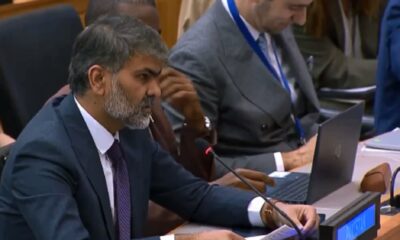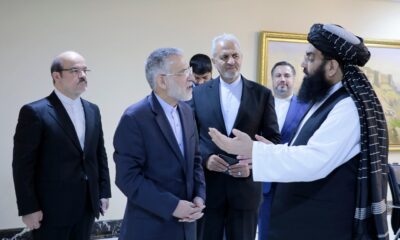Latest News
Afghanistan cannot be left alone to fight ISIS, says Uzbekistan’s spy chief
Abdusalom Azizov said member countries need to consolidate efforts and coordinate measures to counter international terrorism
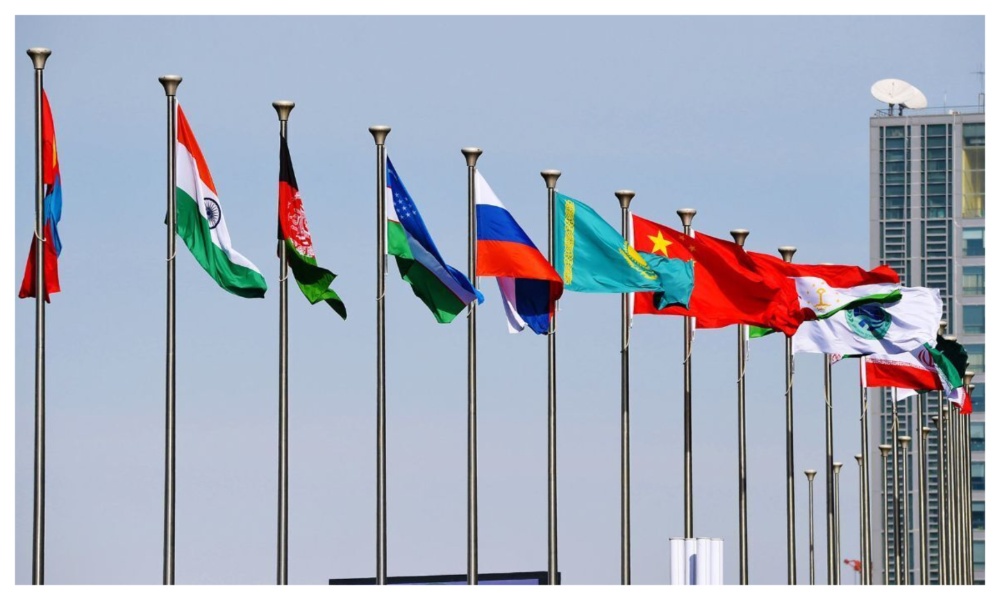
Uzbekistan’s Chairman of the State Security Service, Lieutenant General Abdusalom Azizov, on Wednesday acknowledged the Islamic Emirate’s fight against terrorism, especially against ISIS-K (Daesh), but said Afghanistan cannot be left to deal with the problem alone.
Addressing the opening session of 10th International Scientific-Practical Conference of the Regional Anti-Terrorist Structure of the Shanghai Cooperation Organization (SCO) and the Second Conference of the Commonwealth of Independent States (CIS) on Combating Terrorism and Extremism, which is currently being held in Tashkent, Azizov said the the situation requires SCO member countries to work together to fight the problem.
He said the complex and contradictory military-political processes taking place in the SCO and CIS space require member countries “to consolidate efforts and coordinate measures to counter international terrorism, religious extremism, and radicalism.”
He said the situation is aggravated by the fact that the leaders of international terrorist organizations have not abandoned their destructive plans against member nations.
“The government of Afghanistan, based on its capabilities and resources, counteracts international terrorism. The Afghan Special Service is at the ‘front line’ of the fight against ISIS and is achieving certain results. In this regard, Afghan partners cannot be left alone with this problem. The enemy must be defeated together, based on the principle of indivisibility of security”, Azizov emphasized.
He stated it was important to assist Afghanistan in the fight against the “Khorasan Province”, since weakening countermeasures will lead to strengthening the group, and this, in turn, threatens the security of the region.
He went on to say that only through joint efforts with consistent and coordinated work based on mutual trust, regular information exchange, and experience in combating international terrorism and extremism and countering cyber threats can effective results be achieved in ensuring stability and security in member countries.
The main goal of the conference is to exchange best practices in countering terrorism and extremism, develop measures to improve international cooperation in this area, and establish a unified understanding and approach among participants to new security challenges and threats.
In addition to SCO member countries, representatives from the United Nations, the Commonwealth of Independent States Anti-Terrorism Center (CIS ATC), Interpol, EAG (Eurasian Group), CICA (Conference on Interaction and Confidence-Building Measures in Asia), and others will also participate in the event.
The conference runs over two days – September 4 and 5.
Latest News
Pakistan urges global community to block arms flow to militant groups in Afghanistan

A Pakistani diplomat on Saturday called on the international community to block the flow of modern and sophisticated weapons to militant groups in Afghanistan.
“Terrorist armed groups are in possession of billions worth of illicit arms abandoned in Afghanistan,” Syed Atif Raza, a counsellor at the Pakistan Mission to the UN, told an Arria-Formua meeting of the UN Security Council, convened by Sierra Leone.
“We call upon our international partners to recover the vast stockpile of abandoned weapons, prevent their access to armed terrorist groups and take measures to close this thriving black market of illicit arms,” he said.
Pakistani officials have repeatedly claimed that attacks in the country are planned in Afghanistan and that militants use weapons left behind by foreign forces.
The Islamic Emirate, however, has denied the claim, saying Afghanistan is not responsible for Pakistan’s “security failure”.
Latest News
Gandapur says no Afghan refugee will be ‘forcefully’ expelled from Khyber Pakhtunkhwa
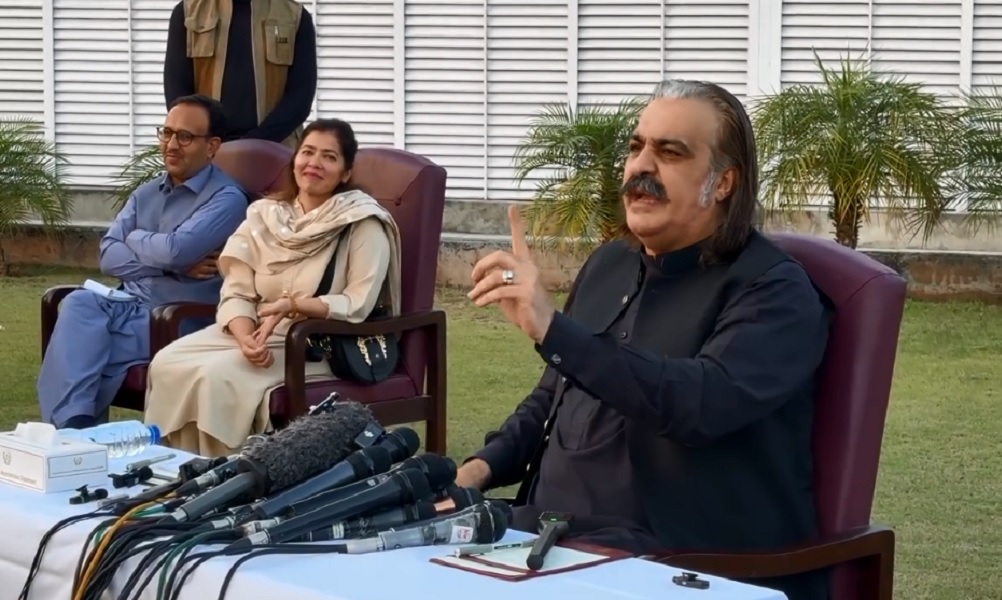
Amid rising tensions over Pakistan’s repatriation plans for illegal Afghan nationals, Khyber Pakhtunkhwa Chief Minister Ali Amin Gandapour said on Friday that no refugees will be forcibly deported from the province.
“We will not allow any Afghan refugee to be expelled by force from Khyber Pakhtunkhwa. We stand firmly against such inhumane deportations,” Gandapur said at a press conference.
The remarks came as the Pakistani government ramps up efforts to repatriate undocumented Afghan refugees and Afghan Citizen Card (ACC) holders, following the expiration of the voluntary return deadline on March 31, 2025.
“The past situation, where Afghan refugees, including women and children, were stranded at the border, tarnished Pakistan’s image,” Gandapur said, reaffirming the provincial government’s commitment to a dignified repatriation process.
“We are setting up camps for voluntary repatriation, and anyone wishing to return will be helped. However, we will not forcibly expel any Afghan refugee,” he stated.
Afghans holding Afghan Citizen Cards (ACC) — issued by Pakistan authorities and held by 800,000 people, according to the United Nations — face deportation to Afghanistan after the deadline.
More than 1.3 million Afghans who hold Proof of Registration (PoR) cards from the UN refugee agency, UNHCR, are also to be moved outside the capital Islamabad and neighbouring city Rawalpindi.
Latest News
IEA has 46 township plans for returnees, minister tells visiting Iranian official
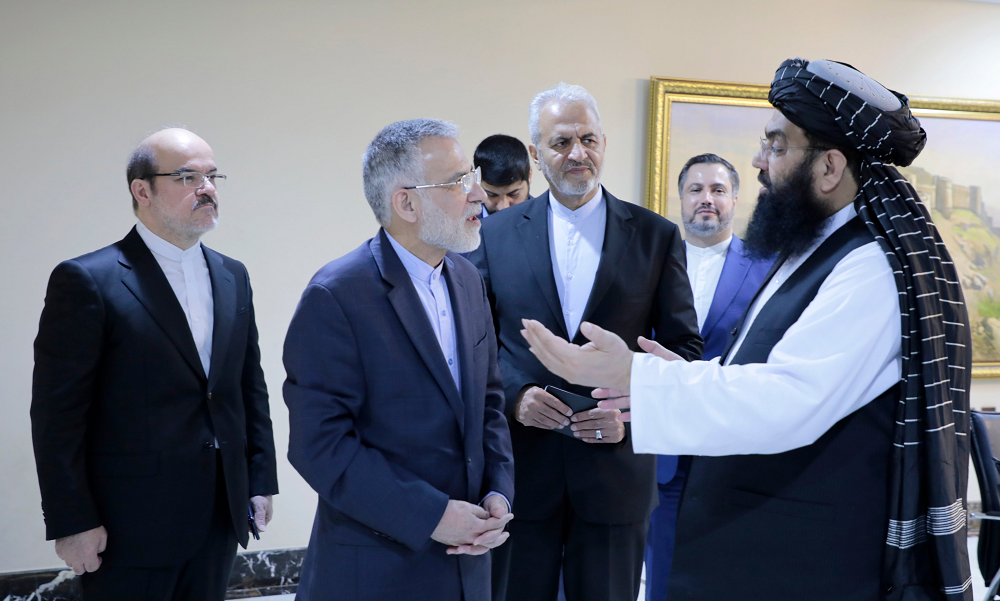
The Islamic Emirate of Afghanistan (IEA) has 46 township plans for returning refugees, Acting Minister of Refugees and Repatriation Mawlawi Abdul Kabir told a visiting Iranian diplomat in Kabul, calling on Tehran to give refugees time to return.
According to a statement issued by the ministry on Saturday, Abdul Kabir said during the meeting that Afghanistan and Iran are friendly neighbors that have many commonalities.
He stressed the need to further develop and strengthen relations between the two countries and said that the frequent visits of high-ranking Iranian officials show that Tehran wants positive and friendly relations with Afghanistan.
Abdul Kabir thanked Iran for its assistance and hosting of Afghan refugees, saying that Iran and Pakistan have been hosting Afghan refugees for the past few decades. He called for more leniency in the treatment of migrants.
He said that the Islamic Emirate is preparing a mechanism to provide legal documents for those migrants whose legal residence in Iran has expired.
In the meeting, Mohammad Reza Bahrami, Iran’s new Assistant Minister and Director General for South Asian Affairs at the Foreign Ministry, invited Abdul Kabir to visit Tehran, and called for repatriation plan to be shared before the trip.
He stressed on the humane treatment of Afghan refugees and appreciated the Islamic Emirate’s initiative to build 46 townships, calling it an important step forward for the return of refugees.
Bahrami noted that there are currently eight million Afghan reguees living in Iran, of whom four million are undocumented or have their residence expired.
-

 Latest News4 days ago
Latest News4 days agoAfghanistan’s reconstruction is in the interest of EU: Uzbek president
-

 Latest News5 days ago
Latest News5 days agoUS won’t rest until all Americans detained in Afghanistan brought home: Rubio
-

 Latest News4 days ago
Latest News4 days agoMinistry of Economy calls on US to release Afghanistan’s frozen funds
-

 Latest News5 days ago
Latest News5 days agoBulgaria brings five people to trial over deaths of 18 Afghan migrants
-

 Latest News4 days ago
Latest News4 days agoPakistan ‘extends’ deadline for a week for Afghans to leave the country
-

 Regional5 days ago
Regional5 days agoChina launches military drills around Taiwan, calls its president a ‘parasite’
-

 Business5 days ago
Business5 days agoGold climbs to record high as tariff worries bolster safe-haven demand
-

 Sport4 days ago
Sport4 days agoIPL 2025: Batters in race for prestigious Orange Cap


